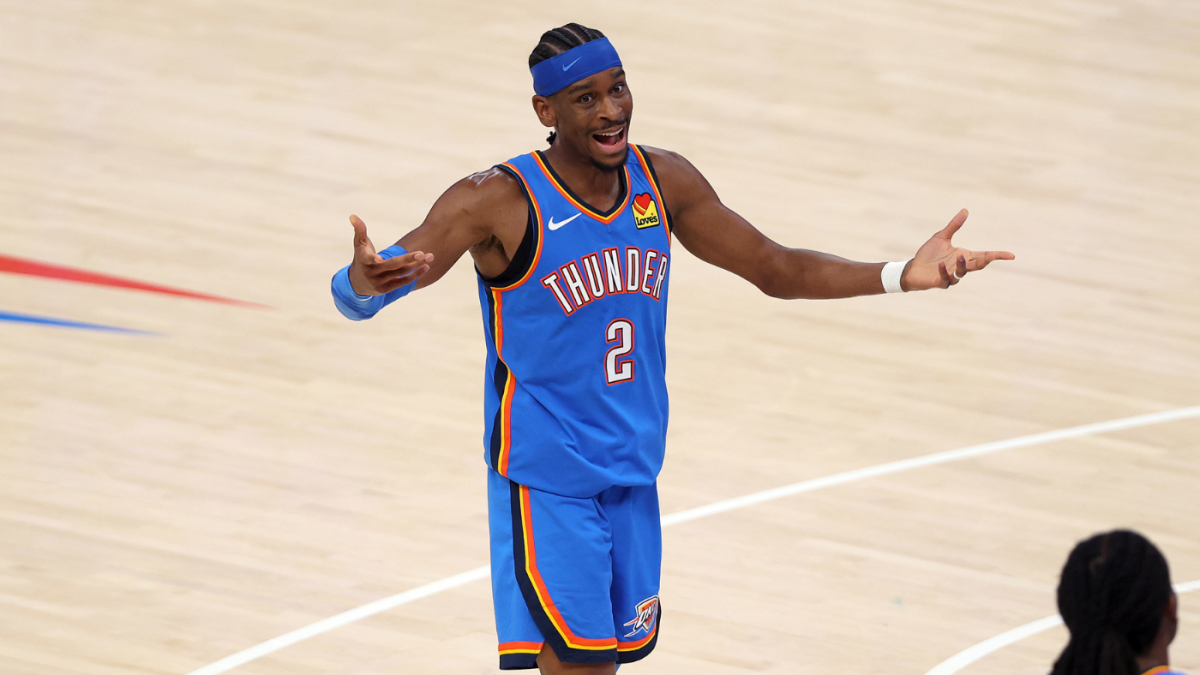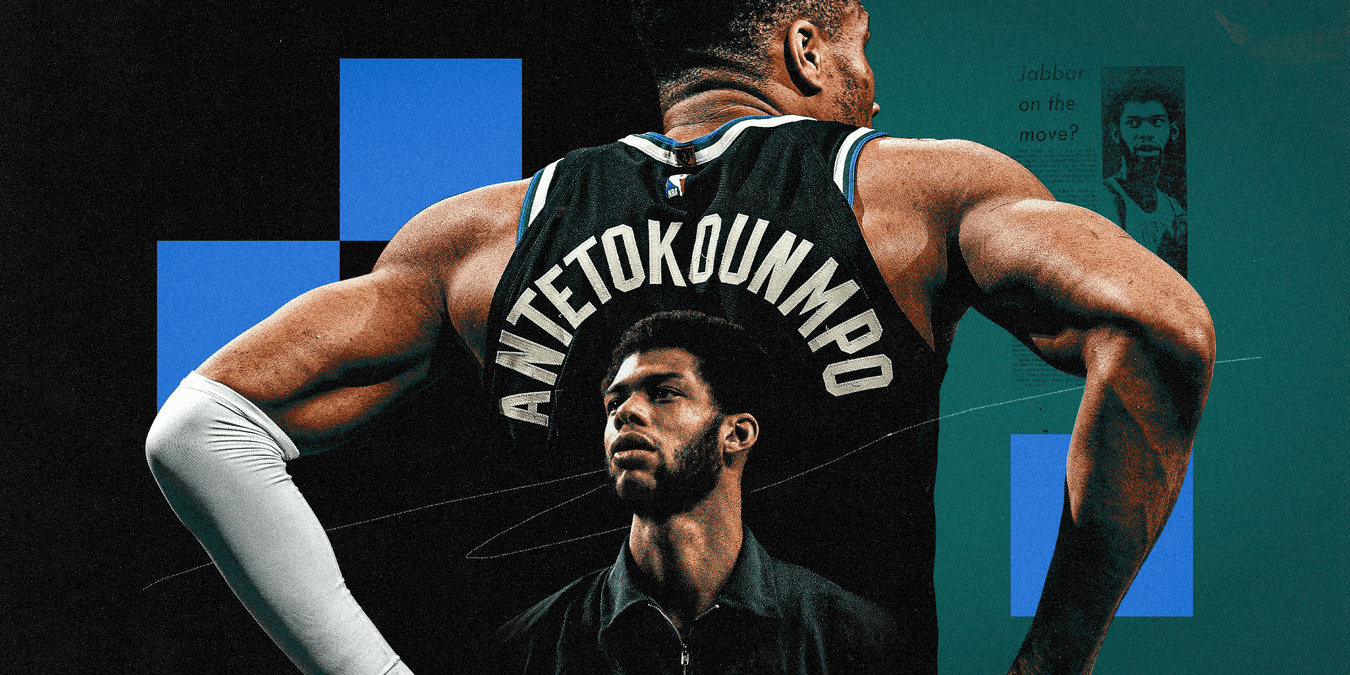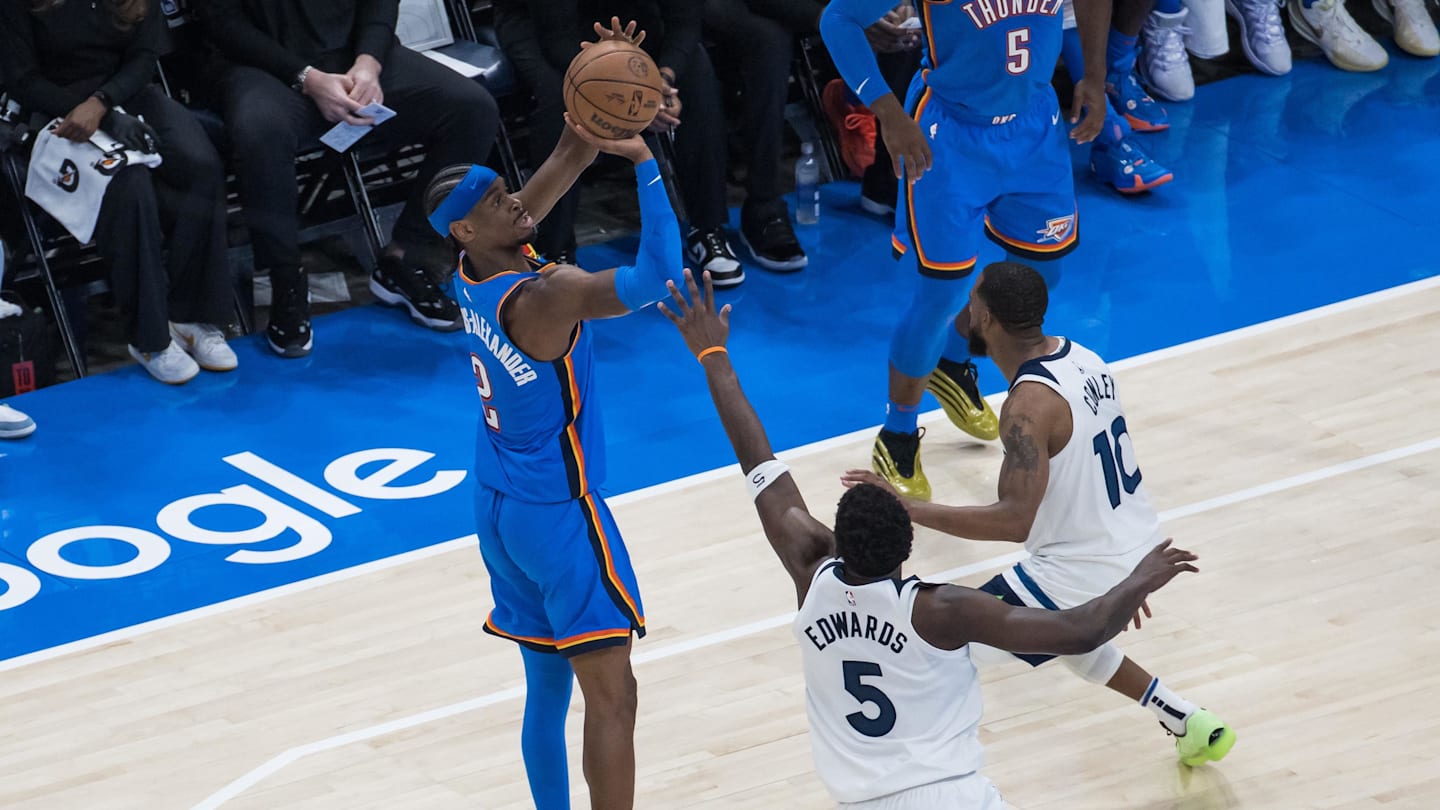
The Oklahoma City Thunder punched their NBA Finals ticket for the first time since 2012 in true Thunder fashion: They suffocated the Timberwolves’ offense to the point that Minnesota — a deserving conference finals team — looked completely inept. Their 124-94 victory in Game 5 of the Western Conference finals on Wednesday was extremely reminiscent of the 32-point win in Game 7 of the previous round against the Nuggets 10 days earlier. Unlike that game, though, Oklahoma City didn’t have to overcome a slow start.
The Timberwolves’ Julius Randle made a 3 on the game’s first possession, but it was all Thunder after that. They held Minnesota to six points in the remainder of the first quarter, which shouldn’t even be possible. It was not just the Wolves’ worst quarter of the entire season; it was, according to Sportsnet, the first time any team had scored fewer than 10 points in a quarter of an elimination game since the 2010 Dallas Mavericks did so against the San Antonio Spurs.
The Thunder led by 33 points at halftime and as many as 39 in the second half. They forced 21 turnovers, but it felt like 100. Just like that game against Denver, Alex Caruso came off the bench and immediately made his presence felt. This time, he jumped out on a Julius Randle-Rudy Gobert pick-and-roll and poked the ball away, then gave the ball up to MVP — and Western Conference finals MVP — Shai Gilgeous-Alexander for a dunk on the break.
It was not only The Carushow, though, as just about every Oklahoma City rotation player forced a turnover at some point. Early in the second quarter, Jalen Williams poked the ball away from Naz Reid, then went coast-to-coast for an and-1, while Randle, the man he was matched up with, stood at the other end of the court with his hands on his knees.
A few minutes later, Gilgeous-Alexander, who finished with a game-high 34 points on 14-for-25 shooting, stayed attached to Mike Conley on a screen, then got his hand on the ball, leading to a Cason Wallace layup on the other end:
Even when the Thunder had a comfortable lead, they sustained their defensive energy. Late in the first half, the Wolves tried to get star guard Anthony Edwards open by running “floppy action,” but after running off two screens, Edwards found himself with Gilgeous-Alexander shadowing him. With Gilgeous-Alexander denying Edwards, Nickeil Alexander-Walker threw the ball out of bounds.
During this postseason, Oklahoma City has 261 “stocks” (steals plus blocks), the most any team has had through 16 playoff games since the 1985 Los Angeles Lakers. Unlike those Lakers, though, the Thunder are doing this against modern, spaced-out offenses. When Minnesota went 5-out, they still managed to protect the paint and wreak absolute havoc on the perimeter. Taking into account Oklahoma City’s lineup versatility, the sheer amount of defensive demons on the roster and the particular challenges of this era, I’m not sure I’ve ever seen a better defensive team. And Wednesday’s performance may have been its peak.
“I thought we had it all going,” OKC coach Mark Daigneault told reporters. “Defensive pressure, defensive help, game-plan execution. And then, offensively, the potency of the attacks. Minnesota threw different lineups, they threw different schemes today — nothing we hadn’t seen, but it was quick — and our ability to pivot in response to that was impressive. And the bigger-picture thing is the focus through the distraction of a close-out game to go to the Finals is what was most impressive. I mean, they were laser-focused today, and that allowed our best to come to the surface.”
The Thunder are now four wins away from their first title in Oklahoma City (and they’re the heavy favorites to win the championship with -575 odds at DraftKings). They’ll host Game 1 of the NBA Finals next Thursday, either against the Indiana Pacers or New York Knicks. The Wolves, meanwhile, fell short in the West finals for the second year in a row and are still searching for their first NBA Finals appearance.
Timberwolves coach Chris Finch credited the Thunder and called them the better team, but, naturally, pointed to the mistakes his team had made. After missing some good looks early, “we started trying to force it all individually one-on-one,” Finch told reporters. This led to turnovers and runouts, and Minnesota lost any semblance of rhythm.
“We didn’t reverse the ball well enough,” Finch said. “There was a crowd on one side of the floor, and when we would throw the ball away from the crowd, we’d come right back into the crowd. And they’re super handsy and physical and they just were taking it from us in those spaces. We had to get the ball to the other side of the floor, and we just didn’t do that consistently well. The initial drive has to be to pass, and a lot of times guys were just trying to score off of those drives and those plays were never really going to be there.”
All of that is accurate. But this is what Oklahoma City does to its opponents. It swarms them, and it overwhelms them. Yes, against the Thunder, you have to try to reverse the ball, not get all harried and find open space. That’s a lot easier said than done when they’re breathing down your neck.

